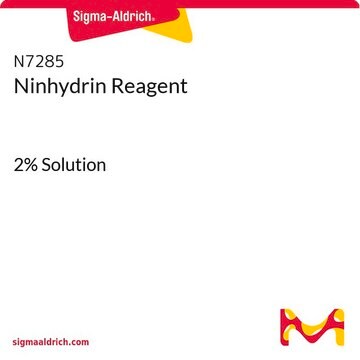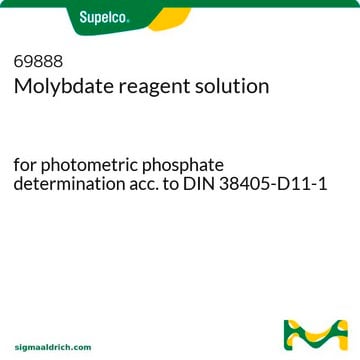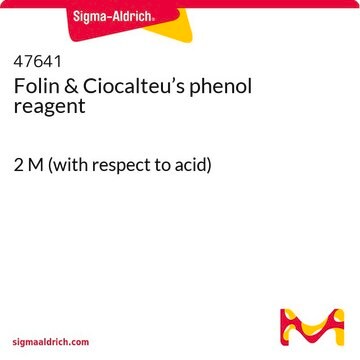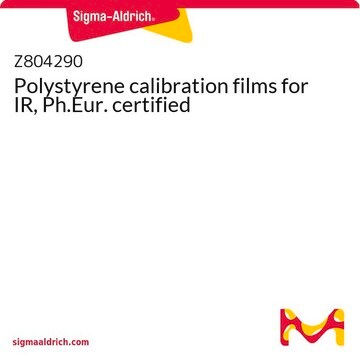MAK308
Phosphate Assay Kit
sufficient for 500 colorimetric tests
Sign Into View Organizational & Contract Pricing
All Photos(1)
About This Item
UNSPSC Code:
12161503
NACRES:
NA.84
Recommended Products
usage
sufficient for 500 colorimetric tests
detection method
colorimetric
relevant disease(s)
gastrointestinal diseases; cardiovascular diseases
storage temp.
2-8°C
Related Categories
General description
Phosphate is one of the most abundant minerals in the human body and contains about 1 % of total body weight. Phosphate homeostasis is maintained by the several regulators such as parathyroid hormone (PTH), calcitriol and phosphatonins. Maintenance of phosphate homeostasis is essential for various biological processes, such as energy metabolism, cell signaling, regulation of protein synthesis, skeletal development and bone integrity. An adequate level of phosphate is needed for the process of apoptosis of mature chondrocytes in the growth plate. Phosphate deficiency is associated with the bone pathology and clinical illness.
Application
This kit may be used to measure the liberation of free orthophosphate in the following applications:
- Phosphatase Assays: liberation of phosphate from peptide, protein, or small molecule substrate.
- Lipase Assays: liberation of phosphate from phospholipids
- Nucleoside Triphosphatase Assays: liberation of phosphate from nucleoside triphosphates (ATP, GTP, TTP, CTP etc).
- Quantitation of phosphate in phospholipids, proteins and DNAs, etc.
- Drug Discovery: high-throughput screen for phosphatase inhibitors.
Features and Benefits
Compatible with high-throughput handling systems.
Reagent very stable: Due to our innovative formulation, no precipitation of reagent occurs. Therefore no filtration of reagent is needed prior to assays, as is often required with other commercial kits.
- High sensitivity and wide detection range: detection of as little of 20 pmoles of phosphate and useful range between 0.4–50 µM phosphate.
- Fast and convenient: homogeneous “mix-andmeasure” assay allows quantitation of free phosphate within 30 minutes.
- Compatible with routine laboratory and HTS formats: assays can be performed in tubes, cuvettes, or microplates, on spectrophotometers and plate readers.
- Robust and amenable to HTS: Z factors of 0.7–0.9 are observed in 96 well plates. Can be readily automated on HTS liquid handling systems.
Suitability
Suitable for phosphate determination in enzyme reactions with free phosphate releases.
Principle
The Phosphate Assay Kit is based on a proprietary formulation of the malachite green dye. The kit reagent forms a blue colored complex with free orthophosphate. The rapid color formation from the reaction can be conveniently measured on a spectrophotometer (600 - 660 nm) or on a plate reader. The non-radioactive colorimetric assay kits have been optimized to offer superior sensitivity and prolonged shelf life. The assay is simple and fast, involving a single addition step for phosphate determination. Assays can be performed in tubes, cuvettes or multi-well plates. The assays can be conveniently executed in 96-well plates for high-throughput screening of enzyme inhibitors.
Signal Word
Warning
Hazard Statements
Precautionary Statements
Hazard Classifications
Met. Corr. 1
Storage Class Code
8B - Non-combustible corrosive hazardous materials
WGK
WGK 1
Flash Point(F)
Not applicable
Flash Point(C)
Not applicable
Certificates of Analysis (COA)
Search for Certificates of Analysis (COA) by entering the products Lot/Batch Number. Lot and Batch Numbers can be found on a product’s label following the words ‘Lot’ or ‘Batch’.
Already Own This Product?
Find documentation for the products that you have recently purchased in the Document Library.
Ana Correia-Branco et al.
International journal of molecular sciences, 21(15) (2020-07-30)
Inorganic phosphate (Pi) is an essential nutrient that fulfills critical roles in human health. It enables skeletal ossification, supports cellular structure and organelle function, and serves key biochemical roles in energetics and molecular signaling. Pi homeostasis is modulated through diet
Kaixi Zhang et al.
ACS applied bio materials, 4(5), 3749-3761 (2022-01-11)
Antimicrobial resistance is a global threat. In addition to the emergence of resistance to last resort drugs, bacteria escape antibiotics killing by forming complex biofilms. Strategies to tackle antibiotic resistance as well as biofilms are urgently needed. Wall teichoic acid
Phosphate homeostasis and its role in bone health.
Penido M G M and Alon U S
Pediatric Nephrology (Berlin), 27(11), 2039-2048 (2012)
Marco Giovannetti et al.
PLoS genetics, 15(12), e1008126-e1008126 (2019-12-20)
Phosphate represents a major limiting factor for plant productivity. Plants have evolved different solutions to adapt to phosphate limitation ranging from a profound tuning of their root system architecture and metabolic profile to the evolution of widespread mutualistic interactions. Here
Tyler M Weaver et al.
Proceedings of the National Academy of Sciences of the United States of America, 117(41), 25494-25504 (2020-10-02)
During DNA replication, replicative DNA polymerases may encounter DNA lesions, which can stall replication forks. One way to prevent replication fork stalling is through the recruitment of specialized translesion synthesis (TLS) polymerases that have evolved to incorporate nucleotides opposite DNA
Our team of scientists has experience in all areas of research including Life Science, Material Science, Chemical Synthesis, Chromatography, Analytical and many others.
Contact Technical Service





